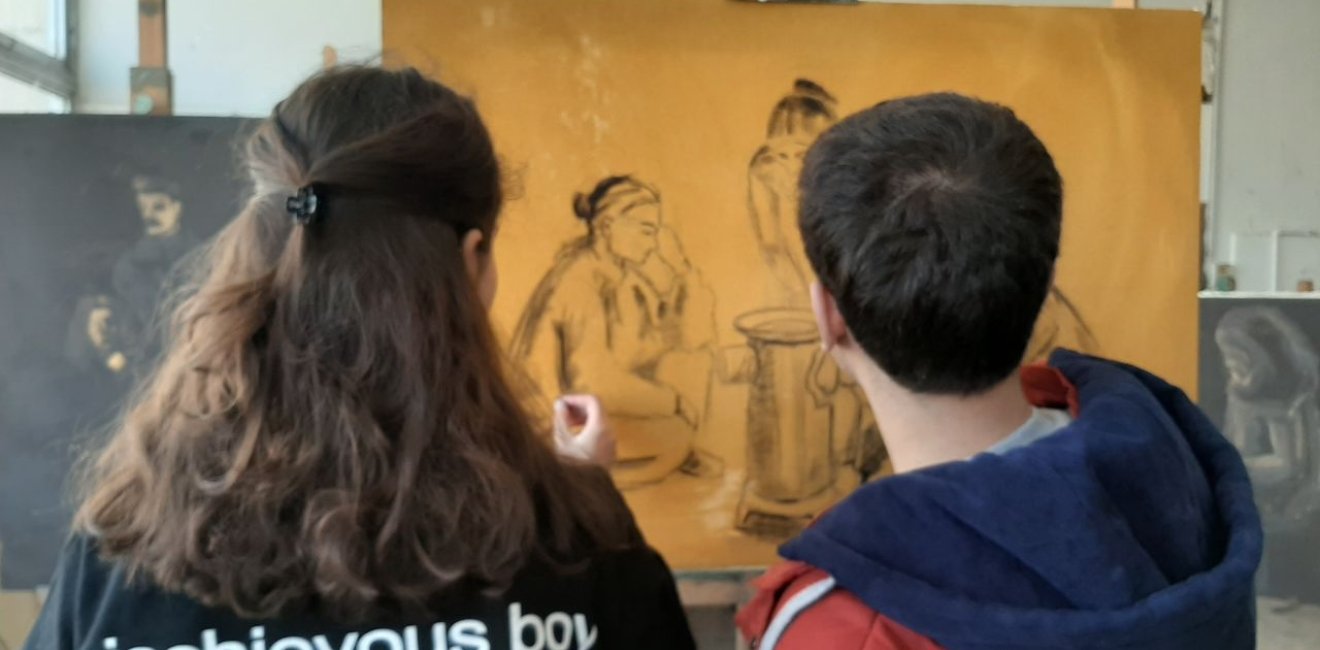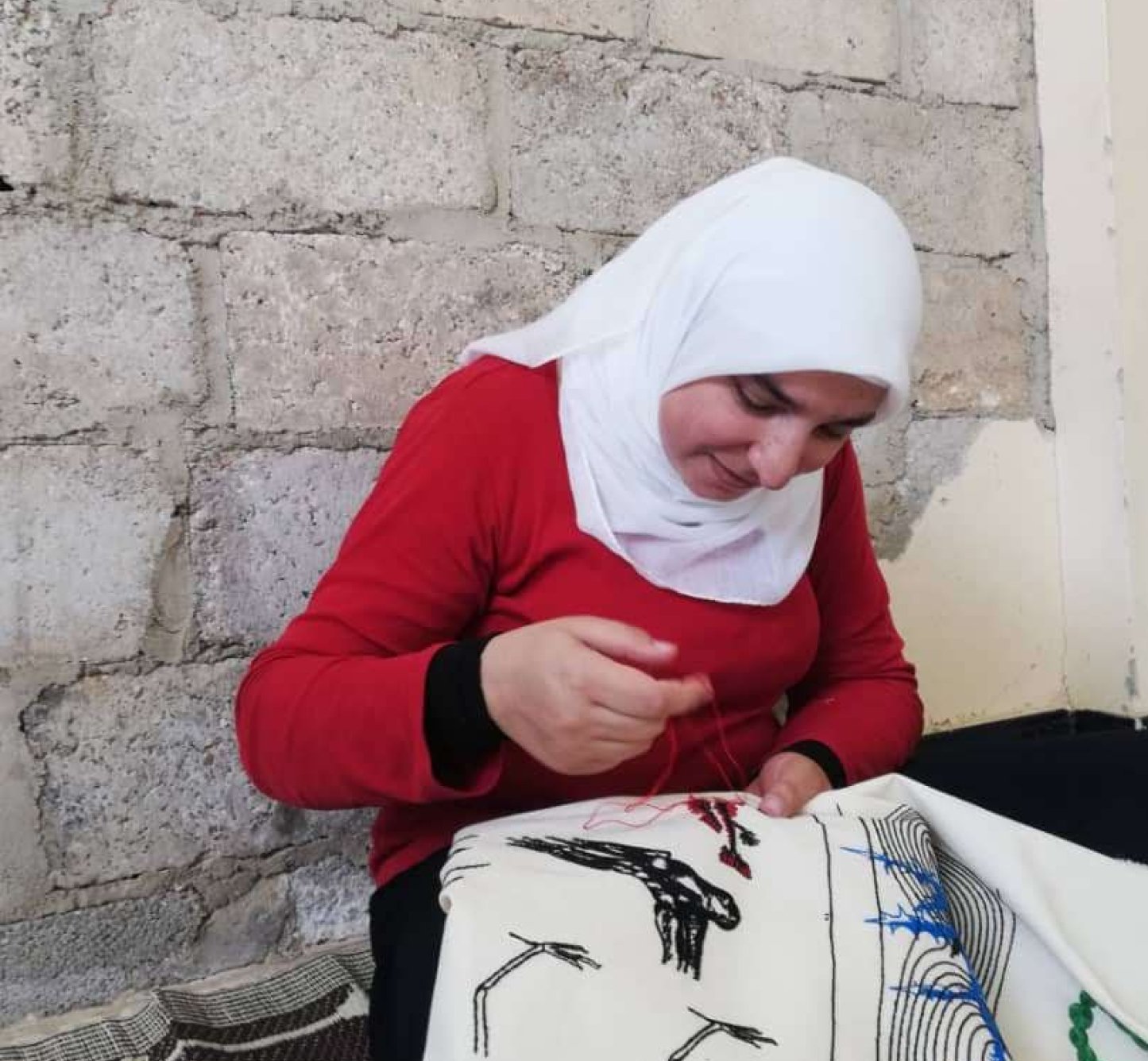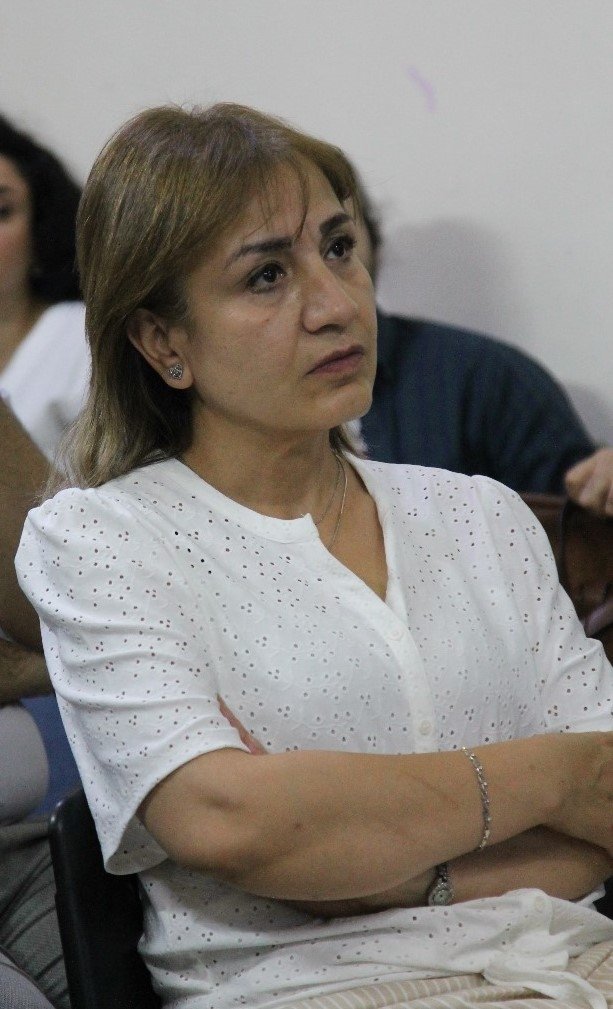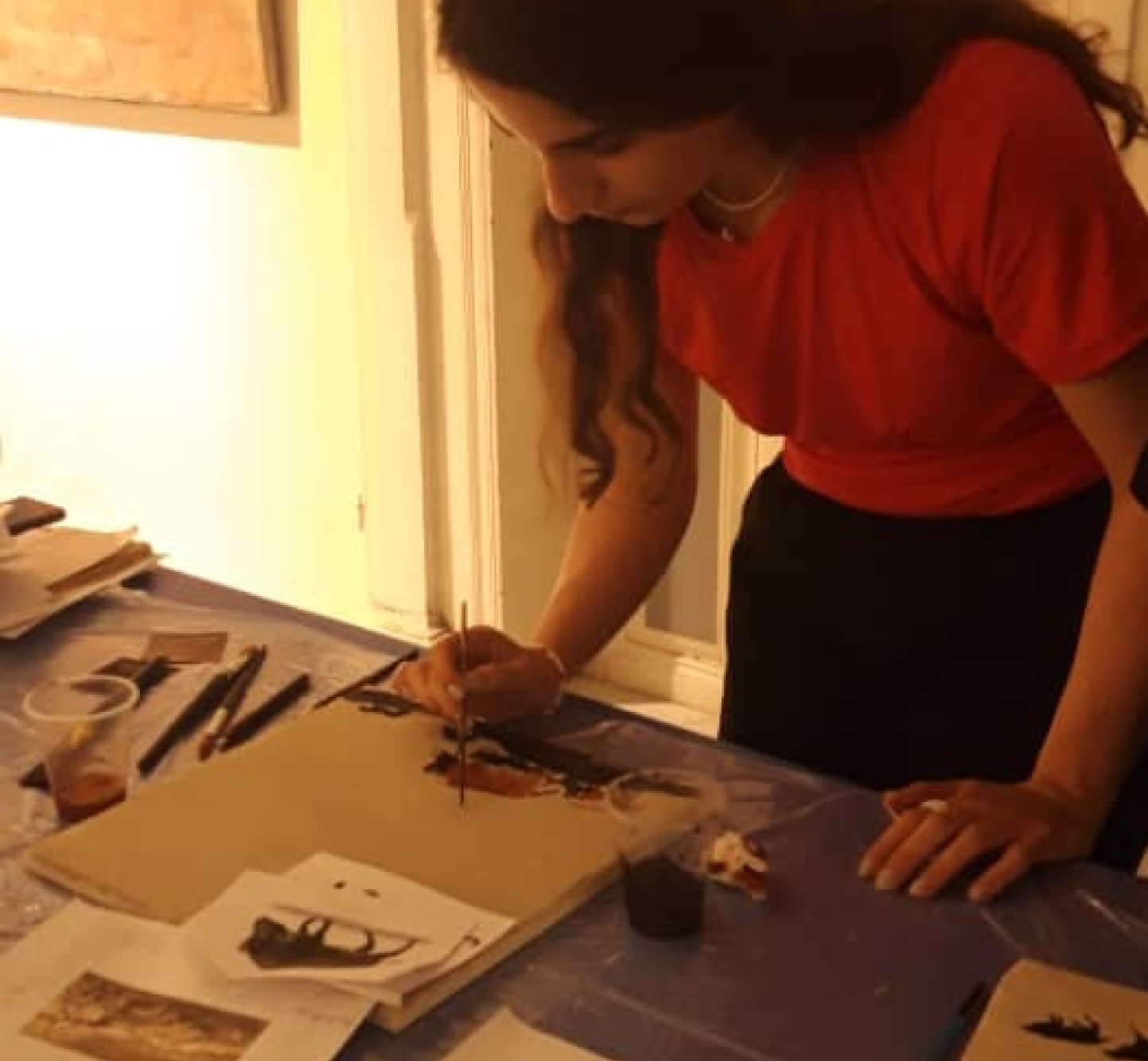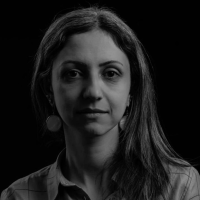In a small workshop on the outskirts of Darayya, a western suburb of Damascus, 38-year-old Om Feras spends her days crafting embroidered pieces and overseeing five other craftswomen. The years of war in Syria were difficult for her, but this work has been, as she describes it, a miraculous gift.
In 2012, after the fighting in her area intensified, Om Feras and her family were forced to flee to a neighboring town. A few months later, her husband disappeared, leaving her to care for their three young sons alone. In 2016, she received news from Syrian authorities that her husband had died.
“They were very difficult years,” Om Feras recounts with teary eyes. “First, we had to leave our house and lost everything, then we were forced to live in new, shared places, and I found myself solely responsible for my sons.”
After the war ended, Om Feras returned to the area, rehabilitated her home, and has since been working hard to re-establish a normal life. She also recently married again and is building a new life with her husband.
During her displacement, Om Feras was introduced to a new initiative supporting women by teaching them handicraft skills and helping them market their products. Despite having no prior experience, she joined the group, learned various styles of traditional Syrian embroidery, and has since become the team leader of the Sama Handmade project.
“After losing my husband—the breadwinner of the family—and our house, I was in total despair. I had to find a way to support myself and my sons without asking for help from anyone,” she explains. “I started knitting and selling some small items. Then, the work grew, and I became responsible for 30 women working with the Sama project,” she said, adding that this work has transformed not only her family’s economic situation but also her personality.
“I was shy, but now everyone says I’m strong. The work changed how I see myself and others, and it broke some stereotypes about Syrian women and their presence in the labor market.”
The newfound work, as well as returning home, gave Om Feras a sense of belonging: “One of the hardest things I faced during the past years was having to live away from my house and city. I used to talk to my sons about it, promising that one day we would go back to our small land where we belong.”



